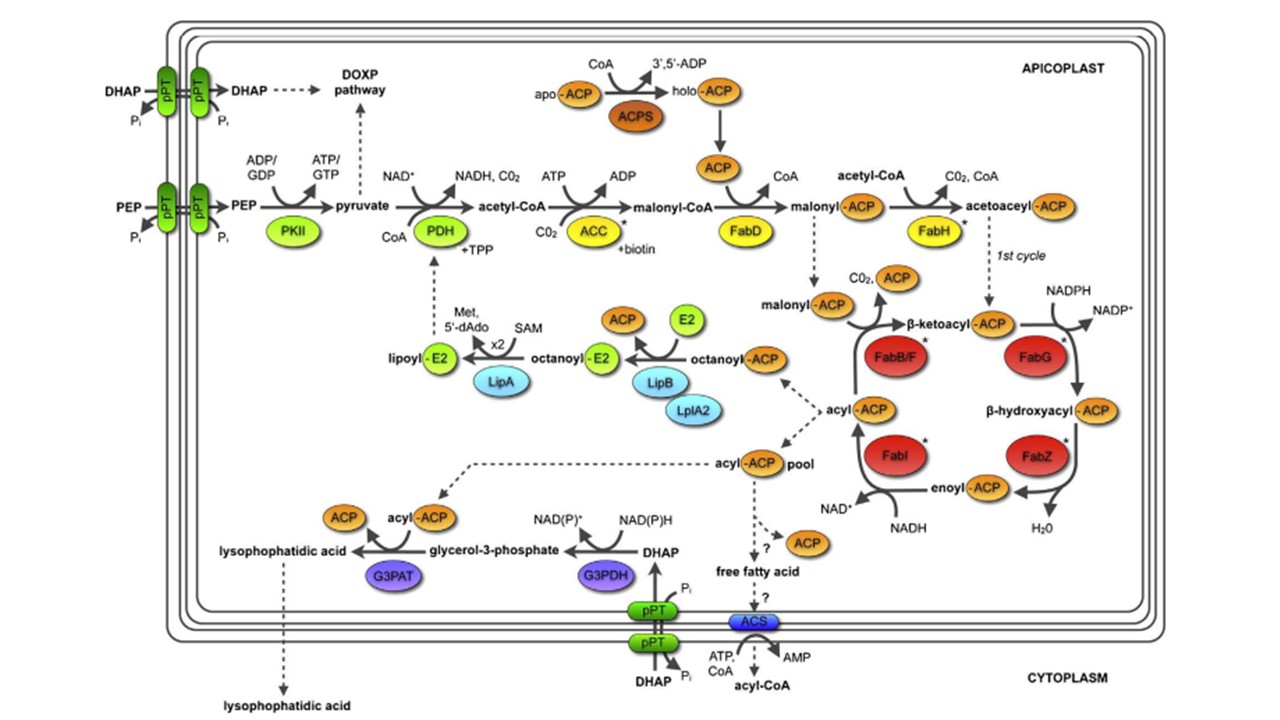The plastidic phosphate transporters (pPTs, dark green) transport phospho-enolpyruvate (PEP) and dihydroxy-yacetone phosphate (DHAP) into the apicoplast for the DOXP pathway and the synthesis and utilization of FASII fatty acids. Enzymes of the ‘preparation’ phase of FASII (light green) generate ATP and reducing power for the apicoplast, and produce acetyl-CoA for subsequent steps in the pathway. Enzymes of the ‘initiation’ phase of FASII (yellow) convert acetyl-CoA into the acetoacetyl-ACP precursor required for the very first cycle of chain elongation, and also the malonyl-ACP used as the carbon donor for subsequent elongation cycles. The acyl carrier protein (ACP, orange) is involved in both the ‘initiation’ and ‘elongation’ phases of FASII, but must first be converted into its holo-form by ACP synthase (dark orange). Enzymes of the ‘elongation’ phase of FASII (red) extend the growing fatty acid by two carbons per cycle, producing the eight carbon octanoyl-ACP and longer saturated acyl-ACPs. Enzymes of the lipoic acid synthesis pathway (blue) convert octanoyl-ACP into the lipoic acid cofactor required by the E2 subunit of the PDH complex, although the exact role of LplA2 is unclear. Longer acyl-ACPs are used by enzymes of the lipid precursor synthesis pathway (purple) to generate lysophosphatidic acid that is putatively exported and then used for membrane lipid synthesis in other cellular compartments. Long chain acyl-ACPs can also be exported from the apicoplast directly via an acyl-CoA synthetase (ACS, dark blue). However, as no apicoplast thioesterase has been identified to act upstream of the ACS, and the localization of the ACS enzymes are yet to be confirmed (both shown by ‘?’), questions still remain about the mechanism of apicoplast fatty acid transport. Enzymes investigated as potential drug targets indicated by asterisks. Enzymatic reactions shown by solid arrows.
Shears MJ, Botté CY, McFadden GI. Fatty acid metabolism in the Plasmodium apicoplast: Drugs, doubts and knockouts. Mol Biochem Parasitol. 2015 199(1-2):34-50.. PMID: 25841762.
